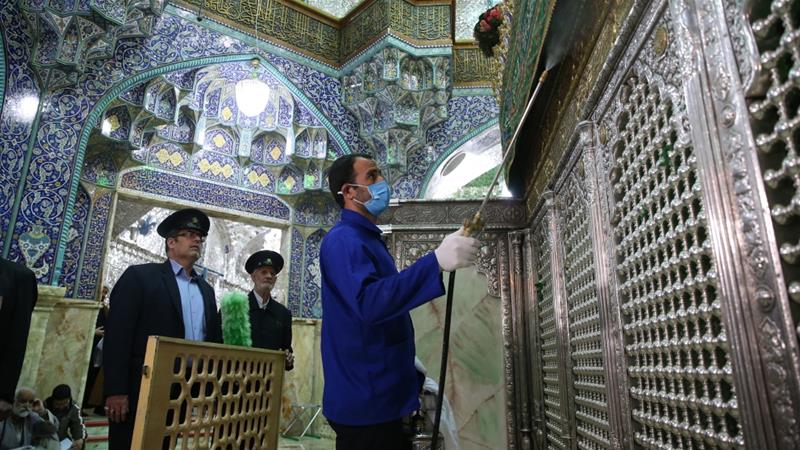How proceeds from a government-led sell off meant to help the country’s health institutions is going to the wrong hands.
In an unlikely piece of news from pandemic-hit Iran, the Tehran Stock Exchange hit record highs in the past few weeks, prompted by government plans to sell off over $2 billion of state-owned assets. But a closer look at the companies and individuals who benefit from these sales raises the concern that, as in many other global examples of virus-related bailouts, the bulk of the raised funds will be funneled toward the bank accounts of majority shareholders and executives, and not to the overloaded health institutions.
Yet it was the government-announced plans to privatize state-owned consortia like Social Security Investment Co., or Shasta, to pay for Coronavirus-related expenses that appears to have boosted trading. The TSE’s main index of shares shot up to over one million points May 9, a first in the bourse’s 32-year history, garnering international attention.
As Bloomberg News noted on May 12, the gains were “mainly in industrial, petrochemical and mineral stocks,” and include “Mobarakeh Steel Co., Persian Gulf Petrochemical Industrial Co. and National Iranian Copper Industries Co.” Two of these three companies, as well as many others owned by Shasta, are co-owned by the IRGC, the armed forces, as well as major bonyads. These organizations, untaxed and unaccountable to the government, stand to pocket the majority of profits from Shasta’s privatization.
Shasta a.k.a. Social Security Investment Co. (SSIC) a.k.a. Tamin Investment Fund has a stake in 36 of Iran’s top 100 companies, as well as 27 of Iran’s top 59 oil companies. It is government-owned, but also co-owns companies along with the Armed Forces, Sepah Cooperative Foundation and EIKO, among other bonyads. As such, it is a vehicle for corruption in its own right; a significant link in the chain of complex ownership structures that keeps money flowing from public coffers into the private hands of regime affiliates.
Powerful people linked to Shasta include IRGC founder Mohsen Rezaei, reformist MP Gholamreza Tajgardoon, and the Shiraz-based Dastgheib clan. All have business interests in Shasta through family networks.

Other activities Linked to Shasta:
Financing Iran’s Paramilitary
Many of Shasta’s subsidiaries are co-owned by the IRGC. For example, Shasta owns a 6 percent stake in Persian Gulf Petrochemical Industrial Co. via its subsidiary, Tamin Oil & Gas Investment. The U.S. Treasury sanctioned PGPIC last June for its business ties to the IRGC and its Khatam al-Anbia conglomerate. Another company whose shares have experienced record yields since the privatization, Mobarakeh Steel Co., is co-owned by Sepah Cooperative Foundation.
Sanctions Evasion
Shasta owns a share in two disappeared oil companies whose public records may have been obscured by the government to evade sanctions: Kharg Petrochemical Company and Petrochemical Industries Investment Company.
Having a Direct Line to Ali Khamenei’s Office
Shasta owns 10 companies audited by the Supreme Leader’s official accountant. Our previous research showed that several bonyads, including Mostazafan Foundation (BM), own small stakes in subsidiaries owned by the Shasta holding. The fact that Shasta companies are audited by an accountancy that only services organizations that fall under the Supreme Leader’s official purview, such as BM and its subsidiaries, suggests that regime-linked actors exert financial control over companies in which they own even a small percentage.
Controlling the Iranian Web
Shasta owns Raham Datak Data Transfer Network, an ISP provider owned by Pars Giti Ertebat Co. This consortium is responsible for most ISP services in Iran, and consists of 11 companies that offer high-speed Internet (PAP). The consortium includes companies owned by Sepah Cooperative Foundation and EIKO.